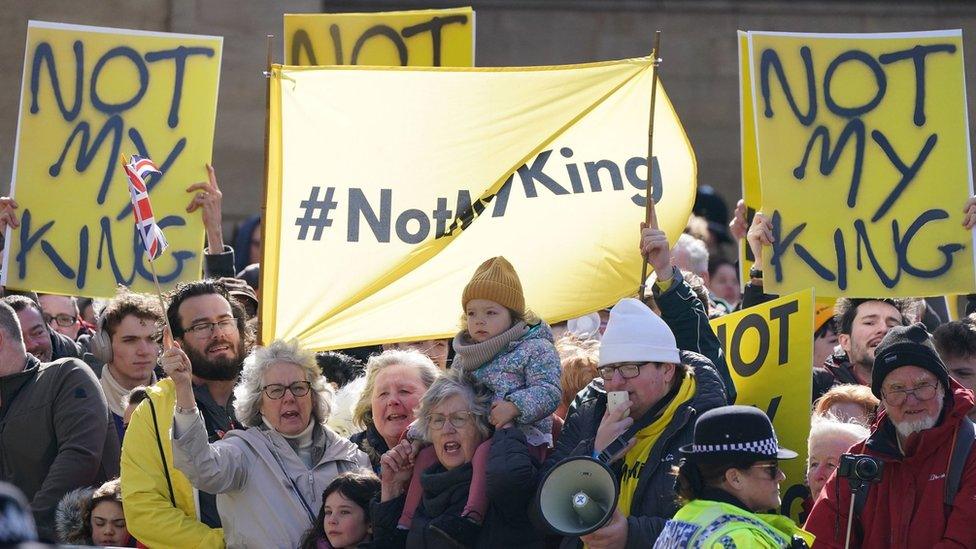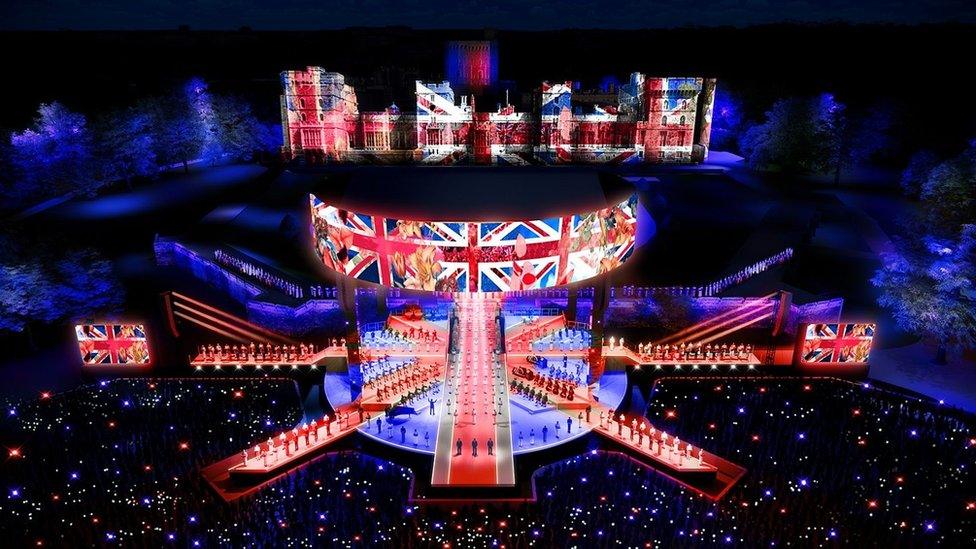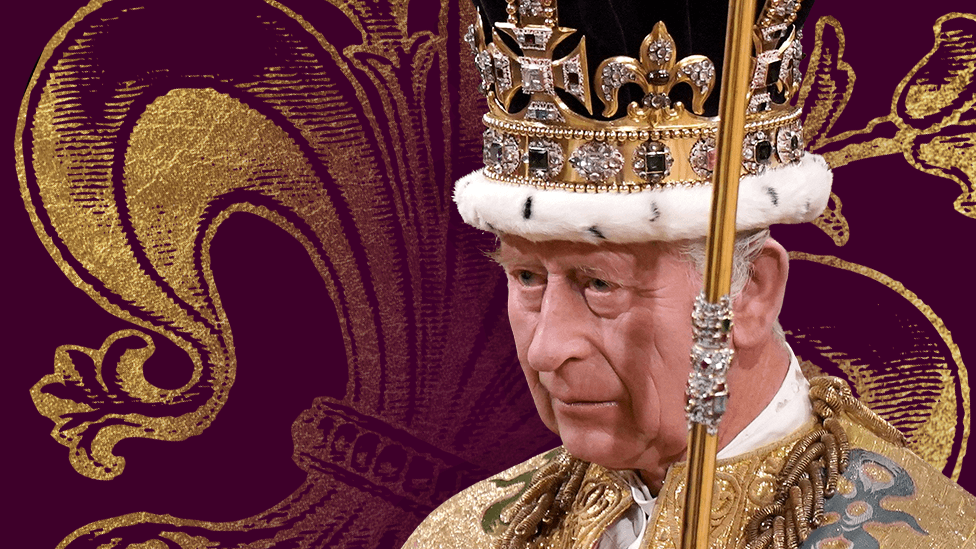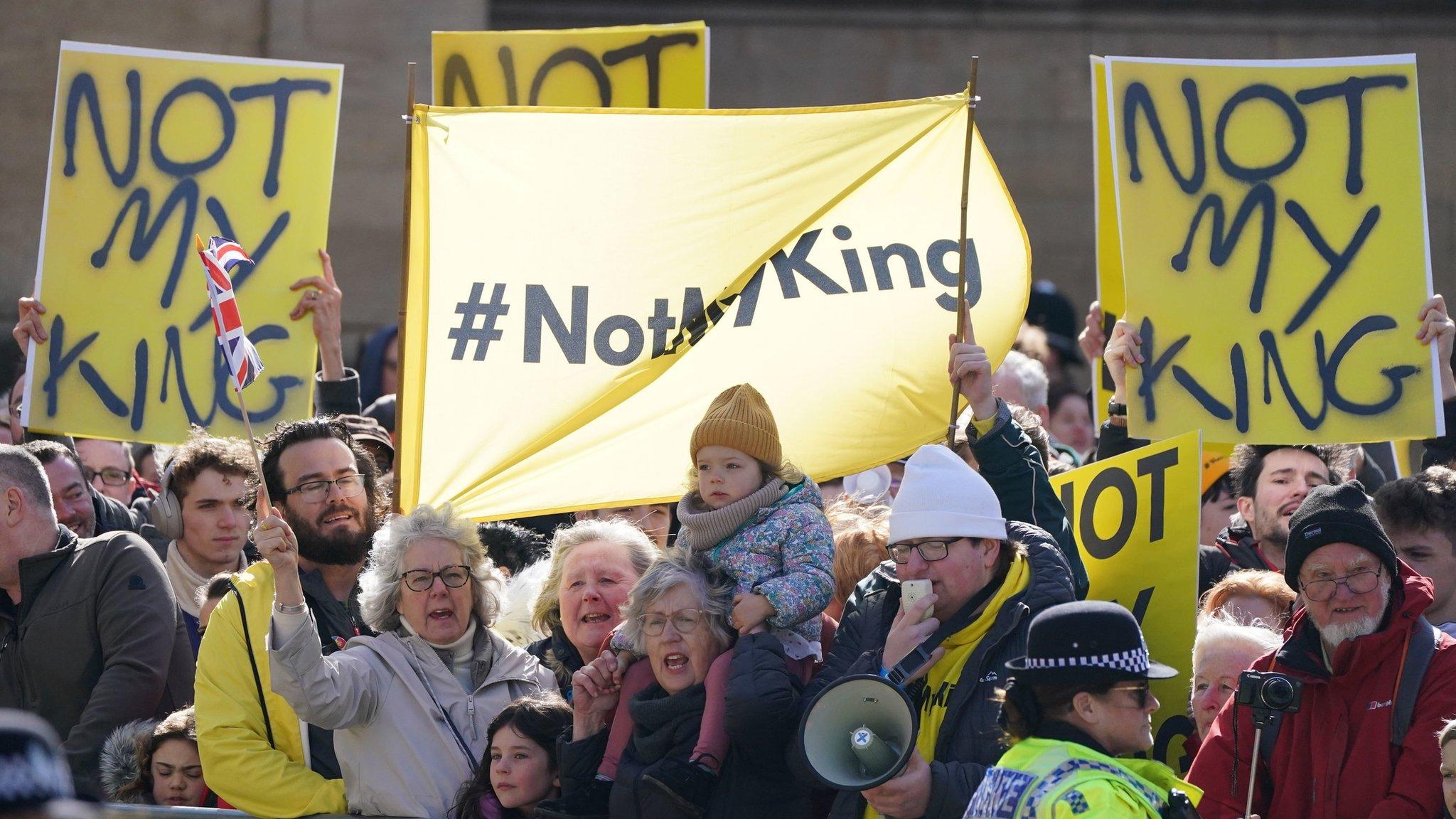Coronation: Police adopt 'lower tolerance' for disruption
- Published

Campaign groups have the right to protest but not to disrupt others
Thames Valley Police has said it will be adopting a "lower tolerance level" for disruption in Windsor over the coronation weekend.
Events on Saturday and Sunday will culminate in a concert at Windsor Castle, attended by 20,000 people.
Assistant Chief Constable Christian Bunt said the force had not been made aware of any planned protests.
But he said, if required, officers would use new protest laws that came into force this week.
Big screens have been erected on the Long Walk to show the coronation ceremony and concert to a limited number of residents, and thousands are expected at the Big Lunch, also on the Long Walk, on Sunday afternoon.

A concert at Windsor Castle will be attended by 20,000 people
ACC Bunt, strategic commander for the policing operation in Windsor, said: "Due to the nature of this event I will be adopting a lower tolerance level for any disruption.
"This includes action that undermines the safety of the event or poses a serious risk of disruption to the celebrations.
"We have a range of existing legislation we can use but we also have at our disposal the Public Order legislation, passed this week."
The Public Order Act, external came into effect on Wednesday and bans protesters from committing acts of "serious disruption".
ACC Bunt added: "Thames Valley Police respect the rights of those who want to protest peacefully and legally.
"I would encourage any individuals or groups who are looking to protest in Windsor over the weekend to make contact with us at the earliest opportunity."
Armed patrols will be deployed throughout the weekend, along with uniformed and plain-clothes officers, drones and helicopters.
ACC Bunt urged also members of the public attending the celebrations to report any suspicious or concerning behaviour to officers or by dialling 101.

Follow BBC South on Facebook, external, Twitter, external, or Instagram, external. Send your story ideas to south.newsonline@bbc.co.uk, external.
Related topics
- Published6 May 2023

- Published3 May 2023
